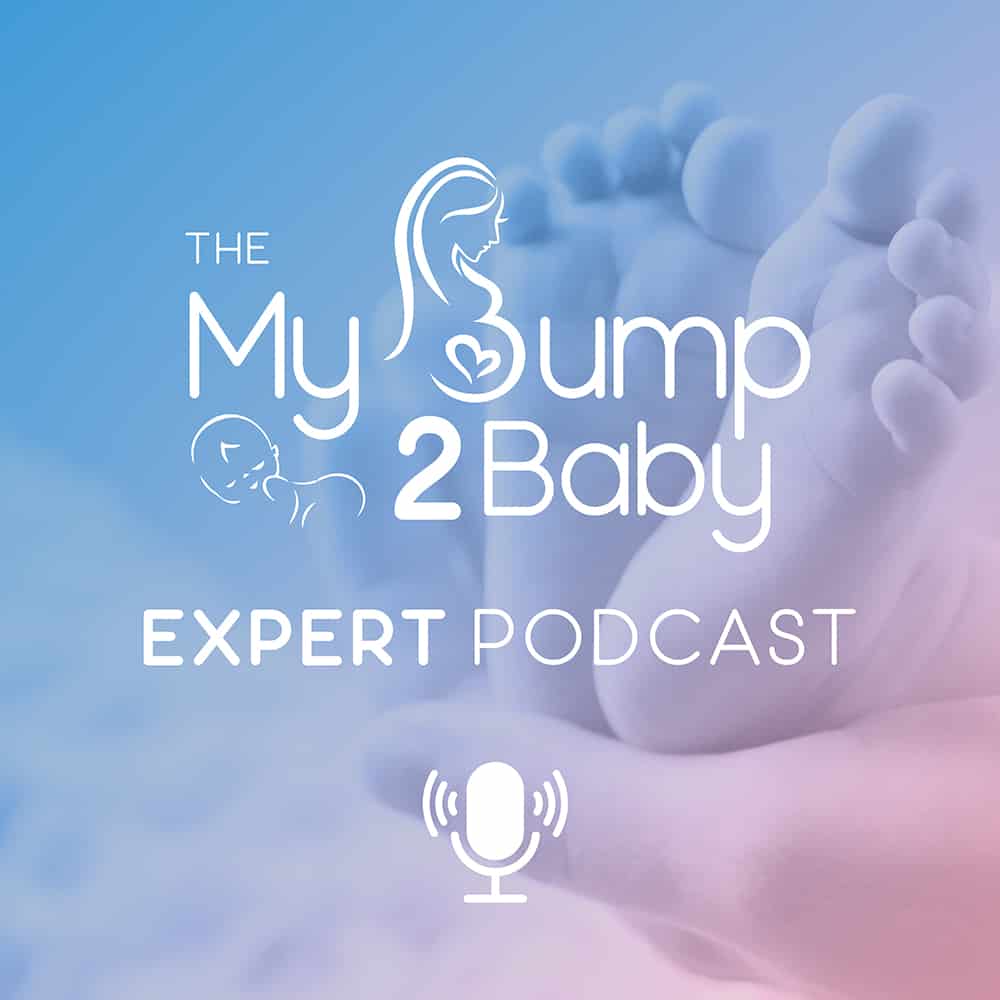- Why Every Parent Needs Income Protection.
In today’s expert podcast we speak with Jordan Shekoni about Income Protection, what it is and why you should have it. We discuss what income protection actually is, how it works, what you are covered for plus so much more.
More Than Money links:
Contact number : 01233555454
Email : [email protected]
https://morethanmoney.uk/contact-more-than-money/
[00:00:00] Carla: My Bump 2 Baby is one of the UKs leading parenting platforms. You can find local pregnancy to preschool groups, classes, and lessons, wherever you are in the UK. Not only that, but you can read our honest reviews on the latest products, days out and services that you as parents need to know about. We also work with trusted financial advisors, family law, solicitors, and now estate agents, too.
[00:00:33] If you would like to find your nearest, trusted expert, head over to www.mybump2baby.com.
[00:00:46] Are you a parent looking to start a small business, perhaps you’ve no idea where to start. Or maybe you’ve already got a small business and you’re struggling to take it to that next level. My Bump 2 Baby is here to support you. My Bump 2 Baby business offers training packages, mentorship programs, one-to-one support, and e-courses, if you would like more information on how to grow your business with My Bump 2 Baby.
[00:01:19] Then email us. Our email address is [email protected].
[00:01:35] Hello, and welcome to My Bump 2 Baby expert podcast, where we bring experts from all over the UK to answer your questions on everything, pregnancy to preschool.
[00:02:00] Today. I am joined by senior protection advisor, Jordan from More Than Money. And today we are going to be talking all about income protection, what it is and how it can help your family. I hope you enjoy this episode.
[00:02:21] Hello everybody. And welcome to My Bump 2 Baby’s Expert podcast. Today, I am joined by Jordan from More Than Money an independent advisory firm. And today we’re going to be talking about the also important income protection. So hello, Jordan, how are you?
[00:02:39] Jordan: I’m very well thank you, very well, yourself?.
[00:02:41] Carla: Yes. I’m very well, thank you. I’m really happy to have you guys on here talking about this subject. It’s so important. So we’ll dive straight into the questions, Jordan. And can you tell us a little bit about what income protection is?
[00:02:55] Jordan: Okay. Yeah, of course, of course. So income protection is, um, very similar to having sick pay for your employer, um, where if you cannot work due to any illness or any accident we can ensure that provider or insurance company pays you a monthly wage or monthly benefit. Until you are healthy enough to return back into work.
[00:03:14] Carla: That’s brilliant. So it really does protect families because obviously when, when it comes to families, there’s, there’s a lot of bills to pay. Isn’t there, you know, there’s nursery fees, mortgages, rent, you know, and if you can’t work, you know, if you’ve, if you’ve not got that protection, it’s obviously it’s obviously going to be a real struggle.
[00:03:33] So, so that’s it, so, so can you tell us a little bit more about how income protection actually works?
[00:03:41] Jordan: Yeah, of course. So for example, for a lot of people, um, your company may cover you with a little bit of sick pay for a few weeks, or maybe a few months, if you’re lucky you work for the NHS and you get , maybe up to six months to a year.
[00:03:56] Um, but for those who only have it for a short period of time or no sick pay at all, um, if you’re off work due to a sickness or due to an accident, you’re not going to have any income coming in. So it’s very important that you have something that’s going to support your monthly, help you cover your bills, help you get your food shopping, help you look after your family.
[00:04:15] And it’s literally just as simple as giving the insurance company a call saying, hi i’m sick. What, they will say is, okay. We just need a doctor’s note just to essentially prove that you’re off work due to the illness. Once you’ve done that, then the insurance company will start paying your claim monthly until you’re back at work.
[00:04:31] So really, really simple stuff, pays a monthly benefit just to ensure that you’re able to keep head above water or live comfortably. And when you’re back at work, um, insurance stops paying the monthly premiums. And then you’ll just go back to, um, back to work as normal.
[00:04:46] Carla: Right. That’s really good. I’m guessing, obviously you’re covered with that, it’s income protection. So you’re covered for, is it just sickness? Is it that it would cover?
[00:04:56] Jordan: So as any type of sickness and any type of accidents, it’s also anything else related to, so if you’re, anything that stops you from getting up for work in the morning, it could be a broken bone. It could be a chest infection, could be an illness, could be quite severe.
[00:05:09] If you’re bedridden, for example, anything that prevents you from getting up and doing your job that day, you can claim on your income protection plan to get some financial support.
[00:05:20] Carla: Wow. Right. Okay. That’s brilliant. So, so how long are you covered for? So if you were off work for quite a long time, how long would that protection last?
[00:05:30] Jordan: So you have a few options on that basis. So you can have up to a years cover. You can have up to two years, cover some insurance will cover you up to five years. If you’re off work for that period of time. And some insurers or most insurers will pretty much cover you up, into retirement age. So, you can pretty much choose how long you cover it for. So it’s pretty good.
[00:05:51] Carla: Oh, that’s good. So it’s really flexible as well. And I imagine as your circumstances change, you know, you can, you can kind of work it in with that. Can’t you really? So how many times could someone use it or, or claim on this insurance?
[00:06:07] Jordan: You can use it unlimited times. So, um, yeah, so you can literally claim on it, as many times as you need to. Um, there’s no limit on that. So it just means that if you need to claim once a year, for example, twice a year, five times a year, a hundred times during the policy term up until you’re retired, you can do that. It’s unlimited.
[00:06:28] Carla: So if you’re a very sick person, I mean, I’ve got a friend that breaks a lot of bones actually, and she’s just one of these really unfortunate people that ends up in a lot of accidents or ill health. And to be honest, this would be, would be perfect for her really. But I mean, I mean, I mean, it’s just that reassurance that, you know, you’re covered because a lot of people do look at life insurance don’t they, and stuff like that. And that’s worst case scenario obviously it’s very, very important, but you are probably more likely to, to be off ill, aren’t you, you’re more likely to be off work ill so.
[00:07:02] Jordan: Exactly. You’re actually up to 10 times more likely to fall sick before passing away. So you’re much more likely to be off work due to illness and actually pass away based on statistics. So it’s actually probably more important to have income protection depending on your circumstances for then some people who have life cover.
[00:07:20] Carla: Yeah, that makes sense. And what we’ll do is obviously I know you cover a couple of the other areas. We’ll just touch on all the things that you guys do afterwards. Cause I think when, when parents think of life insurance or family protection, they just think, well, if I die and for some people, they don’t want to think about that. And then they stop getting that extra life insurance, but there’s a lot of other kind of protections out there that will protect you and your family should the worst happen. That’s not a nice thought, is it? But, um, you know, you just think. You know, you wouldn’t want your family to be without anything. And as certainly, if you’re ill, what can happen? You know, we’ve only seen, we’ve only just come, well, we’re not even out of COVID yet, but we’ve seen how ill people can actually get and for how long it’s it’s had them ill fe for. So, so I think, um, income protection is, is probably, you know, high, high demand at the moment. So if. I own a business and something happened to me. What would actually happen to my business?
[00:08:19] Jordan: So you have, you have two options now. Um, if you are the director of the business and you have employees. Um, but you make a financial contribution to your business and you cannot work. The first thing we’d asked you is what type of impact will that have in your business? So if it means that you can’t pay your employees, for example, or you having issues with the time that you’re having off, because that’s affecting the income in the business, then we can get you get the insurance company to pay your business rather than yourself. So at least that way you can make sure that your employees are paid. You can make sure that you’re still paid for your business. And again, once you’re back at work, everything’s back to normal hopefully.
[00:08:59] Carla: That’s, that’s really good. So that’s like a business income protection is it policy?
[00:09:03] Jordan: Exactly.
[00:09:04] Carla: Yeah. Right. Okay. And, and, um, how much can I get from the insurer if I can’t work?
[00:09:13] Jordan: So it really depends upon how much you earn. So most providers would pay up to about 60 some may go up to the 65% of your total annual income. And the reason why they cap it there is because most of the time when your income naturally, or everybody would pay tax on their income. So you’re probably not going to see about 20, 25 or 30% of your income. So the insurance try to get it as close to you as your take home as possible.
[00:09:42] Carla: That makes sense. Right. Okay. That’s great. And so will any insurer cover me? Have you got a choice of insurers you can use or?
[00:09:52] Jordan: You, you do to a degree now, if you’re in, if you’re in good health, then most insurers will be happy to insure you as normal. And then of course it will be up to you to pick which insurer you prefer, but if you have any, any illnesses or maybe your occupation might be particularly hazardous, for example. Then there might be one insurer who’s going to be better for you than another, because you may get a lower price. So they may provide you with better coverage for what you do in your day to day.
[00:10:19] Carla: That’s brilliant. And if I wanted to get that for my partner or someone wants you to get that for the partner, or maybe even they have children at home, is that possible? Can you get it for the whole family?
[00:10:30] Jordan: So you can get income protection for anybody above the age of 18 who earns an income. If they’re below 18, then of course we can’t cover their income because they don’t have one potentially. Yeah. If you, if you want to get income protections for yourself, for your partner, it really depends again, who is the main bread winner in the situation. If it’s both of you, then I’d recommend both you get it. Whereas if one of you definitely earned most of the income, and if they’re off work due to sickness, then what type of impact is that going to have on your on your household? So yeah, in short you can get it for your partner.
[00:11:04] Carla: No, that, that makes sense. So, so how much does income protection costs then?
[00:11:10] Jordan: So income protection, the premiums, the monthly price that reflect your occupation and your age, essentially. So the younger you are, the lower the price would be because again, based on statistics, you’re likely to be fit and healthier. The younger you are. And if your occupation is quite risk adverse, if you work in an office for example, then your premiums will be lower. Whereas if you worked on a construction site, you may be paying a little bit more for your cover just based on the risk of you actually claiming on the plan. So it’s all dependent upon the individual and their health, their age and what they do for work.
[00:11:49] Carla: That makes sense. I mean, and, and on My Bump 2 Baby, we’re really passionate about, um, linking growing families with their local advisors, because a lot of people make the mistake of going online and just taking out insurance, not reading the small print, just going, right that’s the cheapest I’ll go for that. And unfortunately, a lot of people have found that, that they’re not actually covered when it comes to claiming. So I think working with you guys, um, it’s, it’s really important that people actually speak to people who know. Who are in the job and actually know what they’re talking about and can check that small print for you. Really?
[00:12:24] Jordan: Yes, absolutely. Actually I think even whilst we’re here, just to say. I would always recommend anybody who’s looking at insurance, try and speak to a qualified advisor. Somebody who is licensed or has the qualifications to give you advice. That’s the best place to start, because if anything goes wrong, you know that you’re either speaking with somebody who’s qualified to give you that advice. They’re going to give you the right thing or at least you have some backup from the FCA or S E S T
[00:12:53] Carla: That’s brilliant. Um, so what do you look at parents, growing families that already have income protection and their circumstances may have changed, or they may have taken out policies a few years ago, and they’re not really sure if what they’ve got is actually good for them at this moment in time.
[00:13:11] Jordan: Yes. So, on that basis, we do offer something called free reviews. So every two to four years, if you’re an existing client or new clients who are looking at new policies or different types of products, we’ll always look at your existing plan to see whether it still suits your needs. And it’s important to do that because things do change.
[00:13:29] You may have another child, you may change your occupation. You may be able to save some money. If your job is less risky, for example. So always good to review a plan. Make sure it’s suitable for your needs, at all points in time, because things change throughout life. And we just want to make sure that your, your best protected at all point in times.
[00:13:46] Carla: Yeah, that’s, that’s really important. And I have known people that have actually been paying into life policies and policies like income protection, and they’ve gone to review it. And actually it’s a lot cheaper than what they originally paid out. So it’s definitely worth doing, um, not just obviously you don’t want it, cheaper doesn’t always mean better, but at the same time, it, you know, you want to, you want, you don’t want to pay the cheapest and actually not be covering yourself. I think that’s the mistake. A lot of people do. And you may as well not be paying anything at all then do you know what I mean?
[00:14:18] Jordan: Yeah, exactly. In this, um, we call it the, the sweet spot where it provides you with the right type of cover but at the right price. Sometimes it’s hard to do it because again, it really depends upon your circumstances, your health, your age, mainly. Um, but again, cheap is not always best. So it’s important that you have a plan that is suitable for your needs, that you know, is going to either provide you with the right type of income or the right type of protection.
[00:14:44] Carla: That’s brilliant. And can you tell me Jordan, the difference between this and critical income, critical illness sorry cover is it, is it quite, quite similar?
[00:14:55] Jordan: There’s a few crossovers, but they are very different. So with critical illness cover, you be covered for a list of conditions. So let’s say for example, most insurers will cover you for a minimum of between 40 and 50 different critical illness conditions. Um, for most common conditions will be things like cancers, heart attacks, strokes, and multiple sclerosis. And then of course you’re covered for a variety of other conditions. Now, the chances of you getting any conditions on the list. For the main ones is quite high. You know, you could be looking at up to up to 50% chance of you getting one of the main conditions, but with you getting one of the other conditions, the risk would be a little bit lower. Now, if you were to get one of the conditions that are listed on the policy, then you will receive a payout from the insurer and that’s it.
[00:15:42] You receive one pay on the critical illness plan and you are no longer covered.
[00:15:46] Carla: So like a lump sum.
[00:15:48] Jordan: Yeah, exactly. Like a lump sum. You would get a lump sum payout. Let’s say your mortgage is a hundred thousand. You get a form of cancer. For example, that’s on the list. Then you receive a hundred thousand to cover the mortgage and that’s it. Whereas income protection, it covers you for anything that stops you from working. So it could be minor. It could be major, it could be serious, it could be quite mild, but if it prevents you from working, then the insurer will give you that monthly income until you can return to work.
[00:16:17] Carla: Yeah. So the income protection side of things, then, I mean that, that is. I suppose if you’ve got something like cancer, um, you know, and your, you were unable to work for quite quite a few years and you have the longer policy that it’s going to pay your bills each month, isn’t it really.
[00:16:34] Jordan: Exactly. Yeah, exactly. I mean, it’s, um, it’s good to have critical illness cover. I recommend both because it can, it just covers you in the event of something happening, but, um, you know, a payout can only go so far. Bill’s never stop. So even if your mortgage is paid off, you still have to pay for food shopping monthly. You still need to pay for the utilities you wifi, you know, things that leisure entertainment. So that’s where income protection comes in. Even if the mortgage is paid for you still get the income to cover everything else.
[00:17:05] Carla: That’s brilliant. Especially with these electricity prices going up, uh, you know, thats what, you know, it’s very expensive. So you want your children to also have the same life as what they’ve had before, because not only do you, you know, if you’re really ill, you know, a, you know, it’s sad cause mommy, or daddy’s really ill, but you know, if you have to stop swimming lessons for them, if you had to stop them from doing their usual activities, it’s like its everything that goes, isn’t it really? So. It’s so important. No that’s really, really great. And you’ve answered all of the questions that I had, but I’d love to hear a bit more about More Than Money and how you guys can help growing families if that’s okay?
[00:17:47] Jordan: Yeah, of course. So More Than Money, we’re a young team. It’s really important that I, um, I mean age is nothing but a number of course, but a reason why I emphasise on young it’s because it’s more of a, it’s more of a mind frame rather than the actual age. So we were very young. We’re very vibrant. And for us, it’s really important to have a real conversation with individuals. I think the whole perception on insurance unfortunately, isn’t great, isn’t great. A lot of people concerned whether insurers actually will pay out. Can we actually trust, insurances and insurance companies. Can we actually trust insurance policies? Whereas when you speak to somebody like ourselves, um, we are really for the people, um, what i’d like to say, is that, although we work with the insurer, we actually work for the people so we give you free advice to start with. Which is, uh, which is a massive bonus. So rather than potentially going to a bank, who may charge you an extra premium just for giving me advice. We’re absolutely free. And it is optional. We’re actually not allowed to push you anywhere. So you can feel confident that you can have an open conversation. We’re not going to force you to take up a cover, but we are going to ensure that we give you the right type of advice for your circumstances. Um, we cover income protection of course, we cover life insurance uh, critical illness cover, family income benefits, which is similar to income protection, but that is more of a case of if somebody passes away in the family. Um, would you still need an income if the answer is yes, they we will ensure you receive x amount per month for a set number of years up until let’s say you’re retired or up until the kids are independent.
[00:19:24] So you no longer have to worry about how you’re going to cover, you know, things that food shopping, if that’s what your partner covers. Usually when they were around. So we, we offer a wide range of products. The most important thing to us really is, is having a good conversation with many different people. Because at the end of the day, we, we are also people as well. We also human beings. We have families ourselves. We have commitments ourselves. We understand how important it is for us to make sure these are covered in the event that anything should happen, but it’s also important that we have the best type of products for ourselves.
[00:19:57] And we would do the same for, for our families. So why not do the same for somebody on the street? I mean, the end of the day, it could be a family, you know, distant relative. You never know.
[00:20:07] Carla: So, you know, you’re so right. I th I think, I think the thing is, um, uh, when I, I used to work in financial service, I used to working in banking and actually the amount of people that we saw that came in and they come in and they say, oh, did we, did we take out that insurance, that time you spoke to us about it? Cause years ago you used to be able to talk to them and they hadn’t and seeing they’re just, oh gosh, just seeing, oh, there was one woman in particular.
[00:20:35] And, um, she, she actually didn’t take out the insurance. She really wanted too, her husband. In fact, he wasn’t a husband at the time. It was her partner at the time he was still married to his ex partner. So it was a bit of a messy situation. Um, in terms of, you know, in terms of who would get what, but basically he passed away and they had a daughter together and she was saying to him, please get this insurance, please get this insurance.
[00:21:00] And he said, oh, I’ll have a look it and I’ll sort it out. And he never did. And I remember she lost, she lost everything because the house that they lived in, because he was still married, it was actually, it’s obviously there’s a lot more to it, but the ex partner came and took the house. So this lady was left basically homeless with her daughter. Um, and all, because all because she didn’t take out insurance, so there’s so many different scenarios I’ve seen as well. Um, and I bet for you, um, Jordan it’s actually, although you never want anyone to have to claim on these things, I bet it’s rewarding seeing people actually make the claims and them being successful and knowing that you’ve actually helped that person.
[00:21:43] Jordan: Yeah. Exactly we try, as you know, we offer reviews every two to four years. So we do actually develop a really good relationship with our clients anyway. So when the worst has happened, it is, it is a bit sad for us to, but people do send those letters and send those card, sometimes send us gifts just as a thank you to say look you protected our family financially, the worst has happened. We can’t replace the individual, but you’ve made sure that we can keep our house. You’ve made sure that we can still keep our kids in school. We can keep clothes, clothes on their backs, food on the table, things like that. So, you know, as much as it is really, really sad, we, we do, we do find it rewarding when we do have a successful claim paid, because you can just see the importance of, of having the protection in the first place.
[00:22:26] So a hundred percent. And even while we’re here, Um, there is something you can do called life of another. Where you can actually insure your partner. So you can take on a plan. You can speak to the insurer. I would probably say speak to us because we can give good advice. But essentially what you can do is you can set the policy up on behalf of your partner, but you do need their consent. And depending upon the provider, the individual themselves would need to complete the health questions in relation to the actual application form. But apart from that. If you want to, you can pay for the policy. You can take charge of it. You can make sure its all in place that way, if your partner isn’t as serious as you’d like them to be, at least, you know, you got the peace of mind, you’ve got it all set up.
[00:23:11] Um, you’ve just taken five, 10 minutes out of their day just to get them on a phone, just to complete the application, and then they can continue on doing what they’re doing, but you can have that peace of mind then, um, that product isn’t spoken about much. Um, but again, really important of course, getting the consent of the individual that you want to insure. But once you’ve done that, um, at least, you know, that you you’ve done the hard work and that God forbid if the worst should happen you’ve got that protection in place.
[00:23:36] Carla: Wow. I didn’t know that about that Jordan, but I think that makes a massive difference because I think sometimes in a relationship there’s one person that like looks after the, the money side of things, not all the time. And then, um, one person that, you know, sees this and thinks, oh my goodness, if this happened, that would happen. And it’s not always an agreement in, in the life insurance. And because you have to have a conversation about it, obviously you still would in this scenario, but you’d have to, you think, oh, I’ll have to sit down with someone, i’ll have to do this.
[00:24:05] I mean, the fact that one of the people could actually put the wheels in motion and actually get that done. It is massive. I think if it, if it was actually the other way, round insurance, so naturally you were paying, so if your partner died, you know, you’d be covered. I think a lot more people would take it out because, because you’ve just got to think on, you know, instead of even thinking about yourselves really, think about your partner today and, and what, what you’d miss out on. Even, even with mums, you know, I mean, I could never be a full-time stay-at-home mum. I think it’s probably the hardest job in the world, but even, even as a dad listening to this, that he’s got a wife that stays at home. And perhaps doesn’t bring in an income, think of all the jobs that she does, that you would have to still work and you’d still have to do all those jobs, cleaning, cooking, you know, all of those you’d probably need help. And if you’ve not got any more income coming in, then you know, what, what would you do? Um, so from both sides, really? So.
[00:25:08] Jordan: Yeah, no, no, exactly. You hit the nail on the head there and. It’s it’s, it’s always sad, uh, uh, you shouldn’t get emotional over your work. And, um, I do try not to, but again, you know, I’m human. I speak to humans as well, so I can, I can really relate to a lot of the sad stories that we do come across. So always best to get your insurance sorted as soon as possible. It’s cheaper because you’re going to be younger and you’re always going to get older. So it’s not as if you’re going to make a saving if you leave it for a couple of years. You just might as well get it done now.
[00:25:39] Carla: Yeah, exactly. If you put it off too long, the price has gone up. So, so you may as well get it done today really. So Jordan, how can people get in touch with you, um, to kind of find out a bit more or get you to review their policies?
[00:25:53] Jordan: Yeah, so it’s, um, it’s really so simple theres a few options. Um, you can give us a call on our main office number, you can ask for myself, or you can speak to one of the advisors who are available. Um, the number would be 01233555454. So that’s zero one, two three triple five, four or five, four. So that’s the, the main office number?.
[00:26:20] Um, email address pretty simple. You can, you can email me at [email protected] You can pretty much just send me an email saying hi Jordan, I’d like some advice and we’ll start there really simple.
[00:26:32] So [email protected].
[00:26:37] And lastly, we do have a special link that you can click. It’s actually a relation to this podcast from, bump to baby. So, um, if you, if you follow this link, which is https://
[00:26:54] so the, the normal thing and you click in via the web link. You know what I mean? If you type in morethanmoneyUK/contact-more-than-money/. So contact more than money with hyphens in between forward slash, and that will take you straight to our landing page and you do get a special discount for following that link.
[00:27:16] But if it’s easier give me a call, give me an email and we will also arrange special rates for you.
[00:27:22] Carla: That’s that’s brilliant. And what we’ll do is we’ll put all of those contact details on the bottom of this podcast. So if anyone clicks onto the description, there’ll be able to click straight through to the phone number, et cetera, and the web link.
[00:27:35] So thank you so much, Jordan. You’ve been a delight. You’ve answered all of my questions. Um, That’s brilliant. It’s been really helpful. Thank you so much.
[00:27:45] Jordan: That alright I’ve enjoyed this as well. Thank you for having myself and I mean, essentially you’ve had the team here, so, um, thank you for having us. Um, it’s a pleasure speaking i’ve really enjoyed it and, um, I hope we speak again soon.
[00:27:58] Thank you for listening to My Bump 2 Baby’s Expert podcast. If you would like to find help and support from experts in your local area, head over to www.mybump2baby.com and you will also be able to find local pregnancy to preschool groups, classes, businesses, and services in your local area.











